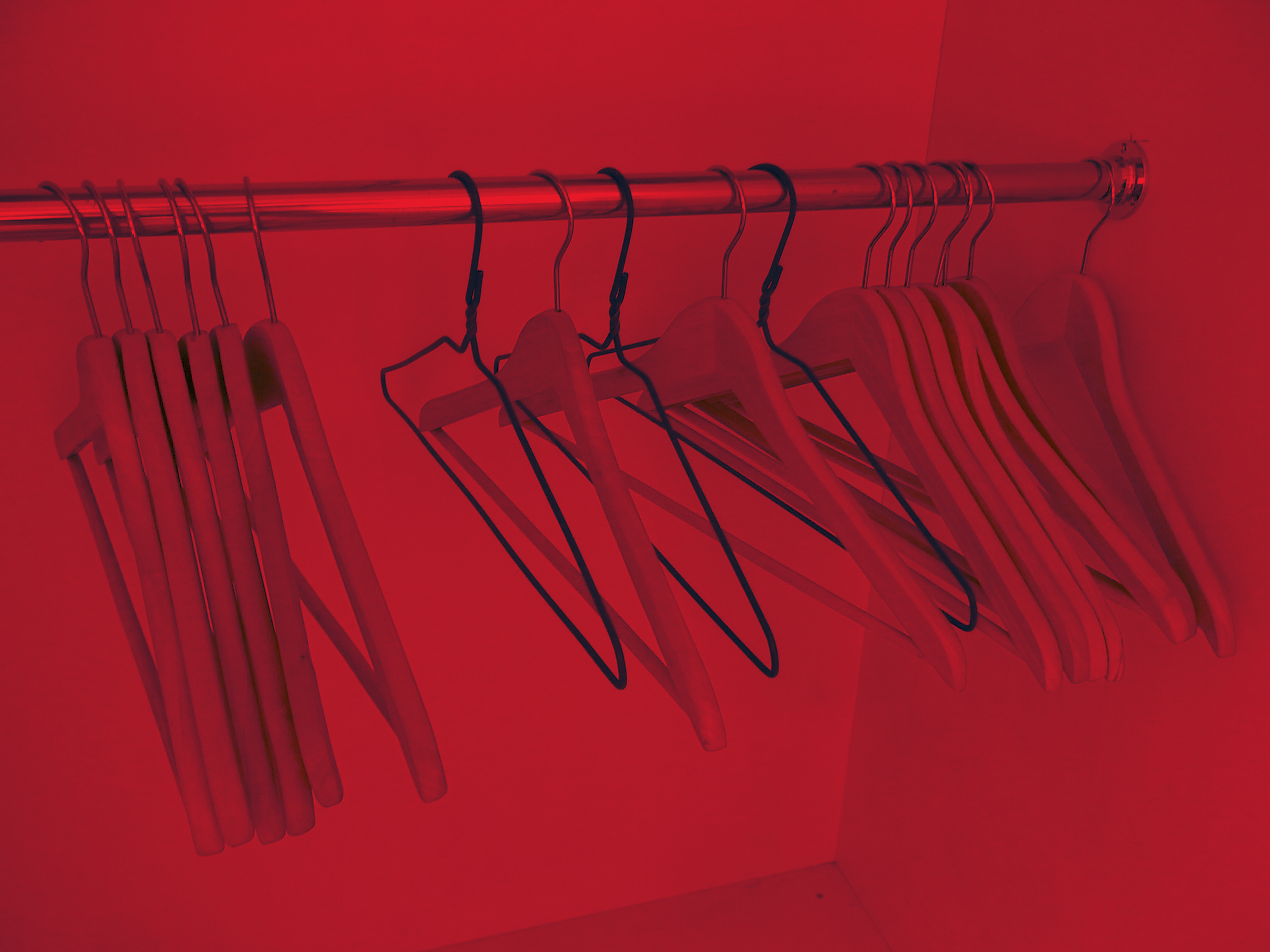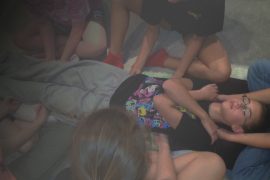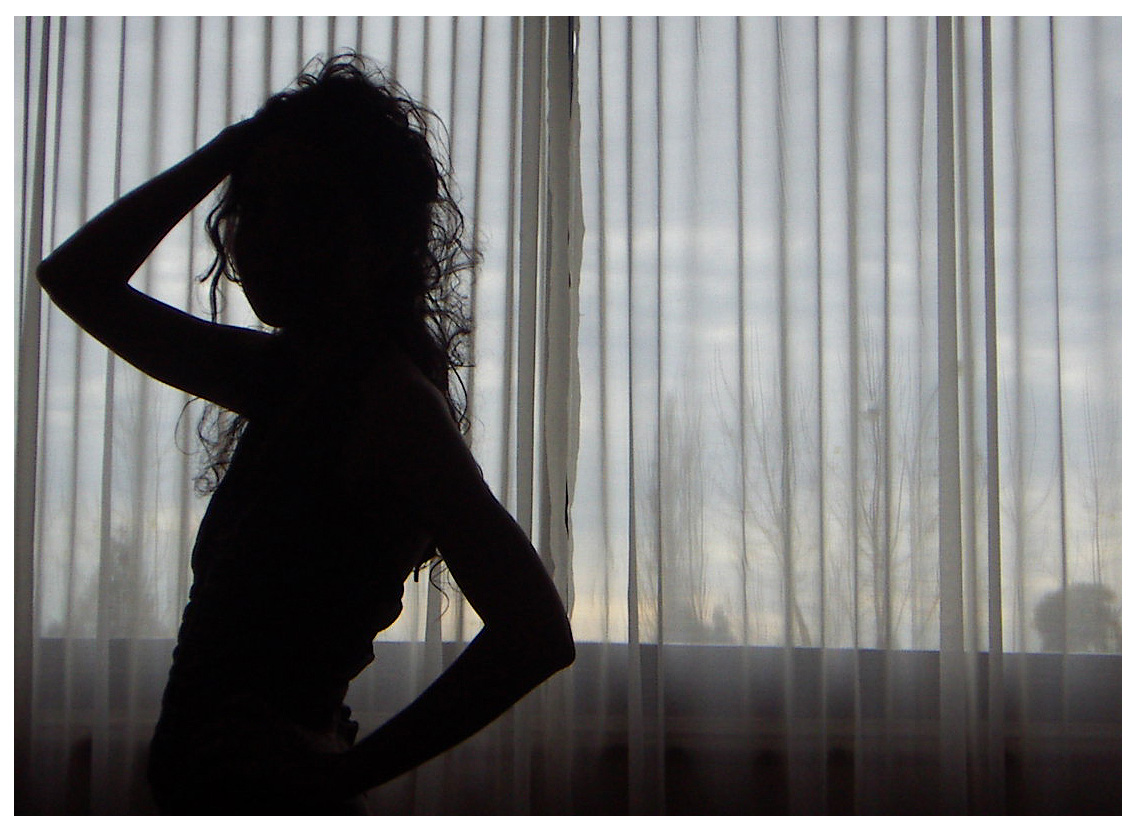Emily Lackey
Everything red in my closet had disappeared. That was the thing I noticed first. It happened slowly—so slowly I figured the missing things had been claimed by the greedy dryer we shared with our neighbors or our new puppy. But then I noticed they were all private things: a pair of underwear, a see-through camisole, impossibly high heels that Lou bought and asked me to wear while I washed the dishes.
I wasn’t exactly upset when they went missing. They were mostly clothes Lou had bought for me, which meant none of them fit right or were in anyway forgiving. When I put the camisole on for the first time, it pulled across my chest and flattened my breasts.
“Your tits look great in that top,” Lou said from the bed where he had been watching me struggle to get it on, but something was off. He wasn’t looking at my face, which made sense, but he wasn’t looking at my chest either.
In the acting class where Lou and I met, we cold read monologues that the teacher chose for us at random. Sometimes they weren’t monologues at all but short stories or a poem or a theater review from the StarTribune. Lou said the day he fell in love with me was the day I read “One Art” by Elizabeth Bishop. He said I nailed the punctuation, the truth hiding behind the commas.
Honestly, I don’t remember that day at all. I figure it’s one of those stories Lou likes to tell as if the five years we’ve spent together were a play he was raving about to friends. He does this in other ways, too. He puts the pictures from our vacations in albums, writing long paragraphs about where we were and what we did. He takes videos of us doing nothing, of me running around the lake, of the puppy tugging at the edge of the carpet. He narrates these as well, like some sort of stage direction that’s meant to go unspoken.
One time I put one of his tapes in the VCR and listened to him describe our life together, listened to him make up stories about us that sounded nice but never right exactly.
That was when I first noticed things were missing.
“Lou,” I said from the other side of the living room. “Have you lost anything lately?”
“Only my mind,” he said, smirking. He was sitting on the couch in his underwear, filming the sun as it moved across the living room floor. The room was covered in the plants Lou watered each day. He picked up the hobby after we spent a weekend in the Berkshires with my mother. Every morning he would join her in her garden, where they sat for hours and talked to her plants, and every evening he would refill her wine glass until she was drunk and laughing at all his stories.
“Things keep disappearing,” I said. The sun was coming in sideways and reflecting off the plants so that everything in our apartment glowed green.
He didn’t say anything at first. Then he said, “I guess that’s the downside of having a dog.” He roughed the hair on Davey’s head.
The thing that bothered me about Lou and my mother was how he seemed to study her like a role he was playing, following her around her old farmhouse and trying on her mannerisms like a costume. Halfway through the trip, I came downstairs to find him standing at the stove in her apron, flipping pancakes and splattering batter everywhere.
When we left at the end of the weekend, my mother cried. I had never seen my mother cry, not even when my father died and left her alone with two teenage daughters. By the time we got back to Minneapolis there was a message from her on the machine telling us to come back. She sounded drunk. She said she missed us already.
“It’s not the dog,” I said, picking up the pieces of the newspaper Lou had strewn about the floor like small islands. “There were things that I had, and now they are gone.”
If Lou knew where my things were, he didn’t show it. He just looked up at me smiling. “Oh, my Elizabeth Bishop,” he said, “you’ve finally mastered that art.”
I threw the pile of papers on the coffee table in front of him.
The thing about that poem that Lou didn’t get was that it wasn’t about what he thought it was about. I looked it up once after Lou told the story of how he fell in love with me for the umpteenth time. When he told it, he played me, reciting my version of the poem like some sort of instruction manual for perseverance.
The way I read it, that’s not what the poem is about at all. If you ask me, that poem is about the way a person can tell himself something so many times he can convince himself it’s true.
Back in the bedroom I dug half-heartedly through the corners of our room. I lifted the edge of the crumpled comforter. I kicked the pile of gray clothing to see if there was any color underneath. What would I even do if I found the things that were missing? Put them on again? Parade around like some bright bird in heat?
I thought for a second about digging through Lou’s things to look for mine. Maybe they got mixed in with his in the wash, I told myself. Maybe they slid into his closet the last time I left them lying on the floor. Or maybe Lou was right: Maybe the dog carried them into the yard and buried them in the ground like something dead.
Did I really want to find those things? Maybe—I don’t know—maybe they were never there to begin with.
I lay down on the bed and listened to the sounds of Sunday mornings with Lou: his quiet and constant monologue with the dog, the soft rustling of newspaper between his hands, the plants in the window silently moving toward the sun.
Emily Lackey’s work has appeared in Hobart, Buffalo Almanack, and The Billfold, among others. She lives and writes in the greater New York area. Follow her on Twitter at @emilyklackey.




